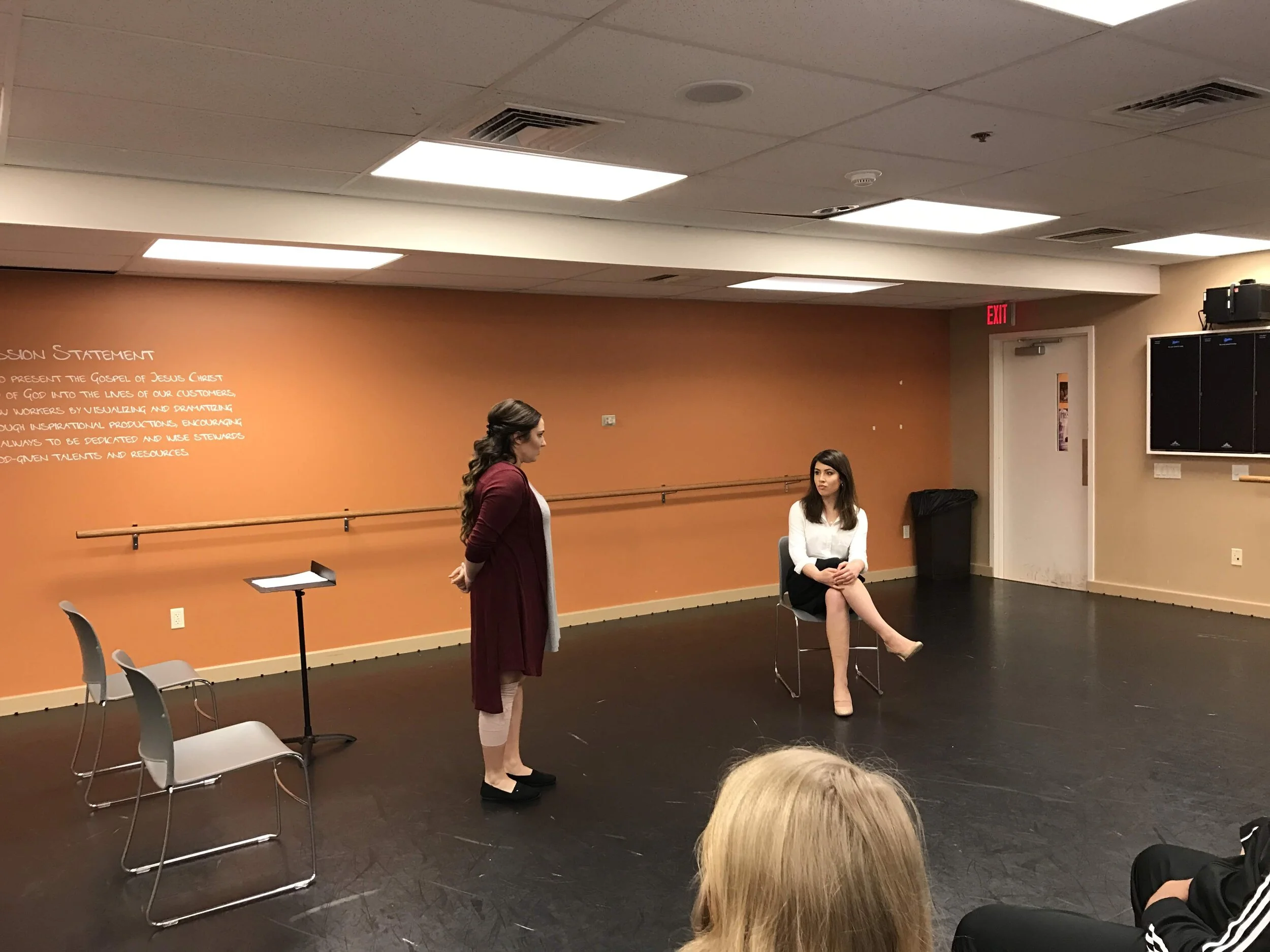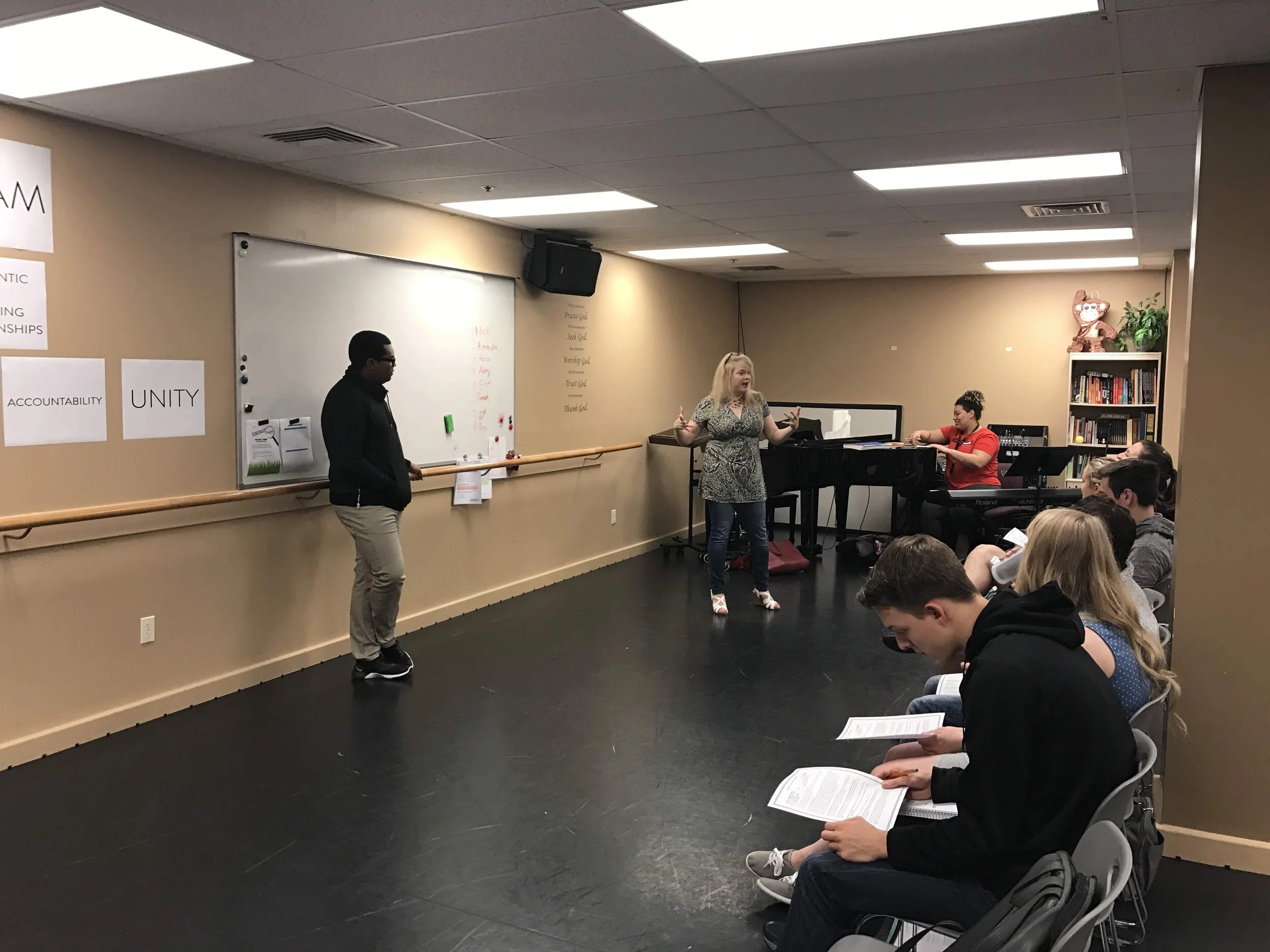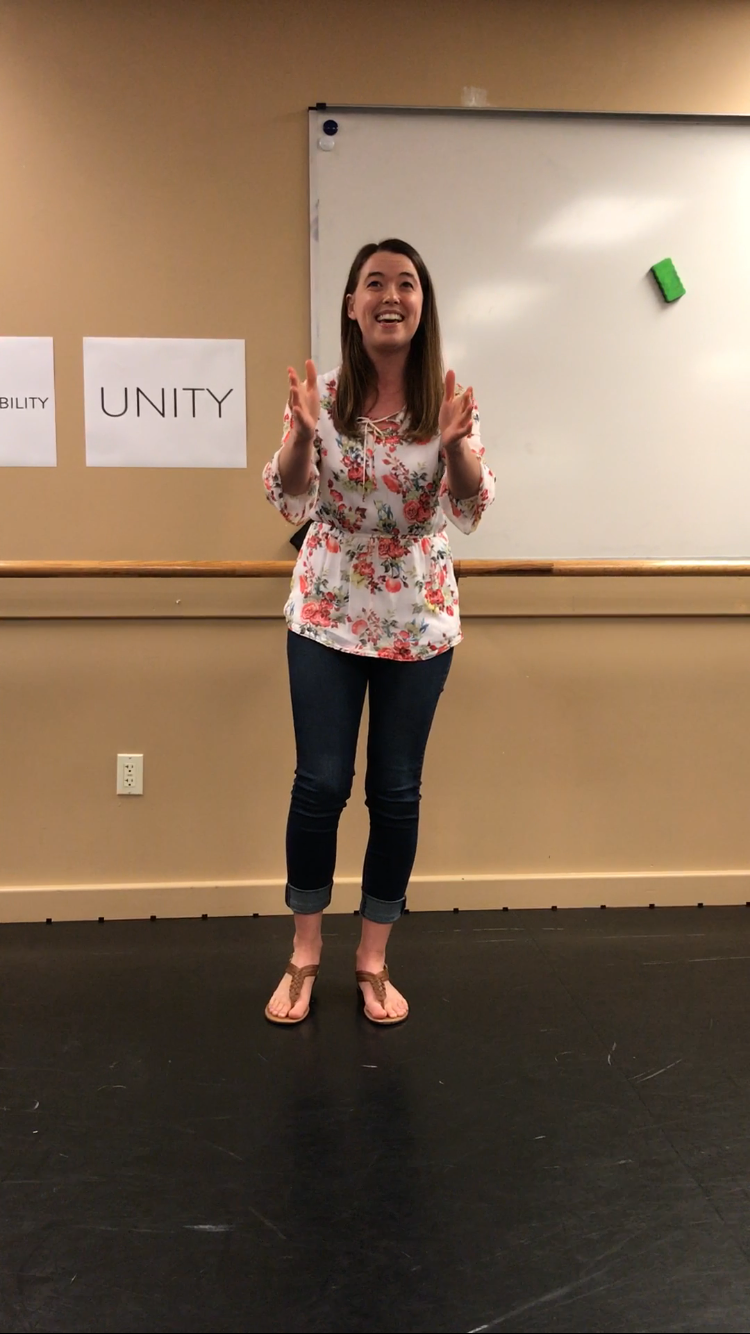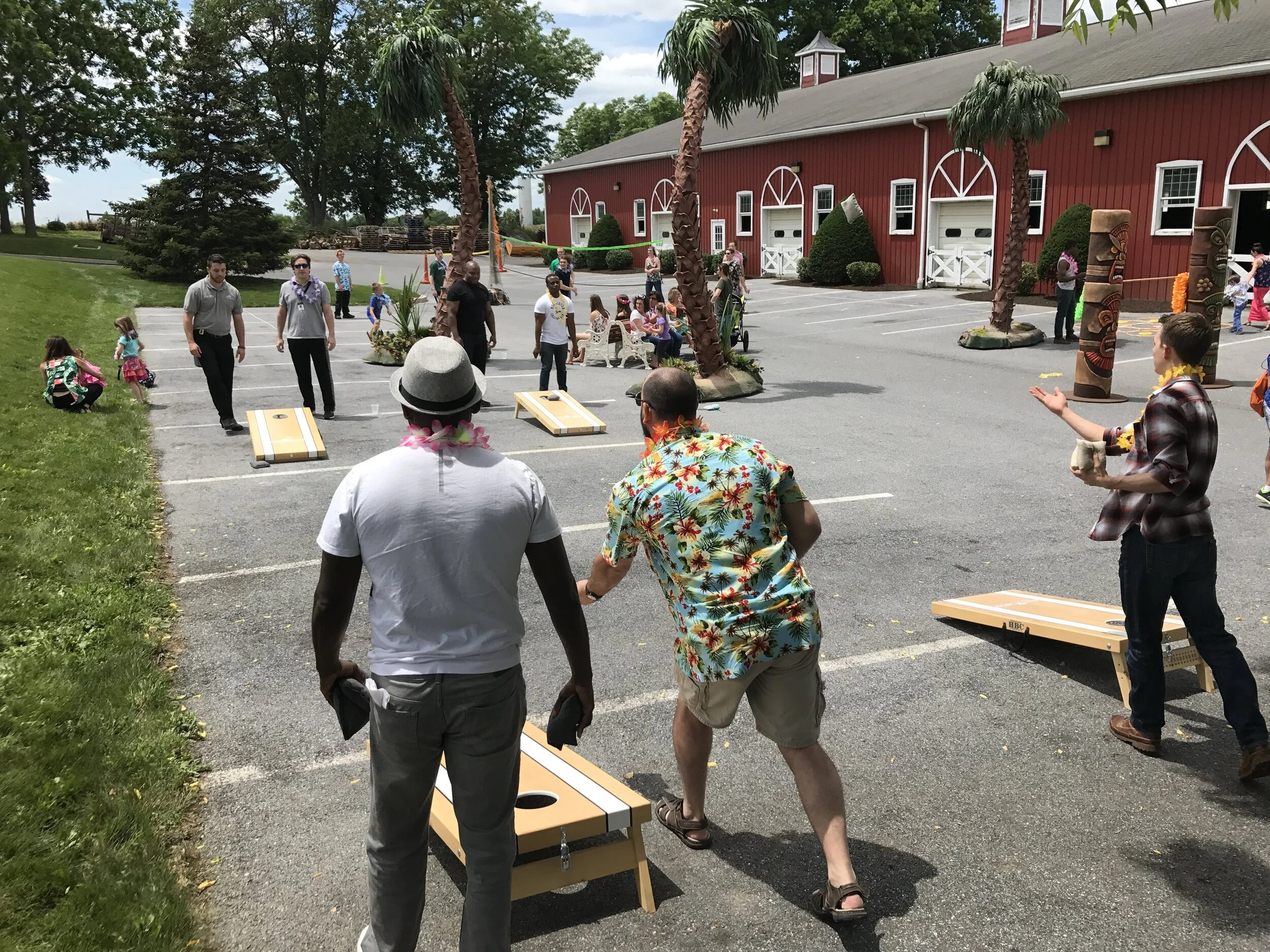Characters, Quirks, and Picnics
One of my favorite things about the Conservatory is watching my fellow classmates perform. We do so in pretty much all of our classes. No matter the topic, there will most likely be a day in which we stand up in front of the rest of the students and recite, sing, do a scene, give a monologue, or even simply move in a way that tells a story.
And every once in awhile, while someone is up “on stage”, a chuckle will ripple through the little audience and knowing glances will be exchanged. At the end of the performance when we’re asked to give encouragement and constructive criticism, one of us will undoubtedly tell the performer, “You did that ‘ism’ again!”
Abby and Cassie (an actress in the cast) working on a scene.
A running theme throughout all of our classes is that of taking on a character. After all, that’s what acting is! Becoming someone else for a short time in order to tell a story. But truly getting into a character is no easy task, and can be quite a bit more involved than I thought before coming here. It's a delicate balance of knowing how much of yourself to include and how much to "leave behind", so to speak.
Every person has their own little quirks and mannerisms that are unique to them. Because we’ve spent so much time together we’re able to pick up on a lot of our classmates's. We can all do pretty good impressions of one another with extremely comical results. (We actually did that one afternoon in Singing For The Stage and it was quite entertaining.) Quirks can be things like always moving your hand a certain way when you’re explaining something, shrugging your shoulders habitually, fiddling with your glasses, shifting your weight, or twiddling your thumbs when you’re thinking.
Joanne working with Aaron to help make choices about "isms." She really emphasizes this aspect of performance. :)
Personal mannerism, or “isms” as we call them, aren’t bad at all. They’re fun and set you apart. But they do cause problems when they show up in a character you're portraying. And your next character, and your next…then we begin to see that you have fall backs and habits that are go-tos when you’re not sure what else to do. These make for weak character choices because they’re not intentional, which lowers the believability of the entire performance. NOT GOOD!
So something we’re trying to help each other do this year is harness those “isms” in a constructive way. Most of the time we don’t even realize we’re doing them until someone tells us. And then we can be aware and try to correct them. I’m grateful that my classmates will call me out when I do “that little tick” over and over again. I don’t want the characters I play to all be the same. But our "isms" can be kept if they serve the story. If “that little tick” fits a character, it’s perfectly fine to leave it in. “Just as long as it’s a strong, intentional character choice and not an absent-minded addition,” says Joanne, our Voice Teacher.
I performed a song last week and Ellie told me afterward, "I saw lots of little Kinsey-isms, but they seemed to fit the character." That's good! The problem was I wasn't exactly trying to include Kinsey-isms. So now I know better for next time. Ellie helped me see things I couldn't see myself and I was grateful!
Taking on a character and making him or her separate from what you’ve done before will be vital as we move forward in our careers. Joanne tells us that the key is think about your character’s isms. What sort of person are they? What little ticks and habits would they have that convey their personality? Make intentional choices about little things that your character would do. When you have this direction, it helps to eliminate your own absent-minded “isms”, replacing them with strong choices, and make your performance much more believable.
To be a great performer, our characters must be real and relatable. It takes a lot of work, but as Jeff, our acting teacher would say, “Specificity is the friend of authenticity. If you can consistently make specific, strong, believable choices, you’ll work for the rest of your life.” We all want to be great someday, and giving our characters their own “isms" is what great performers do! In a way, you're valuing your audience enough to put in the work required to carry the story along rather than distract from it. That makes their experience as spectators the best that it can be.
Speaking of being valued, I’m certainly enjoying my time as an “employee” at Sight & Sound. There are many good places to work, but Sight & Sound seems to do an especially good job of valuing their employees, regardless of what department they're from. I know I won’t be here past this year, but I’m very appreciative of how intentional they are in taking care of their own. From what I've experienced so far, people aren't viewed as commodities. There’s almost always some sort of event or challenge going on to build culture, and communication between departments seems open and honest.
An example is the Company Picnic that took place a couple weeks ago. Our class schedule was adjusted to allow us to join in for about half an hour. The back parking lot by the barns was set up with games and decorations. A food truck catered BBQ and there was also a soft-serve ice cream machine. Summer has officially arrived, but because of our packed schedule we don’t always get a chance to enjoy the warm weather. So it was great to spend time outside and enjoy the good food.
I hope to have my own performing arts studio one day and, while I don’t pretend to think it will ever be close to the scope of Sight & Sound, I do want it to be a good place to work. I want to take initiative and be a good leader. I’m seeing that firsthand in Sight & Sound as both a company and performance venue. I’m experiencing the receiving end of it now and hope that someday I’ll be able to provide it for others.
It’s all about making people feel like the valued individuals that they are. Either through events like a Company Picnic, or by harnessing your "isms" to deliver a believable performance that ministers to people’s hearts.




